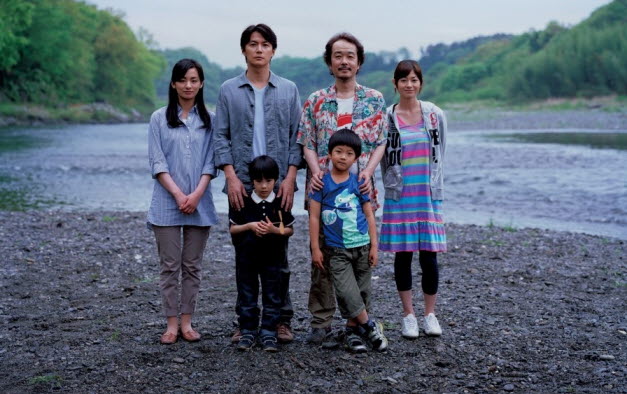
Hirokazu Koreeda was born on June 6, 1962, during the uprising of the Japanese economic miracle and in their return as a world powerhouse, industrially speaking. The Japanese cinema also began its change and development into something much more “new-wavish” with the rise of new directors and actors.
Although he started as a documentarist working for magazines, in the 90s he would release four movies that marked his entire career, solidifying his style as one of the top dramatic directors of all time. His masterpiece, “Nobody Knows”, is a highly regarded and referenced release, having won several awards for its emotional honesty and realism without fearing his own descriptive limit. Still, Koreeda remains as a strong reference of the Japanese industry and a personal favorite.
Although he’s been criticized by some audiences for the “lack of velocity” in his movies, Koreeda remains faithful to his own style, picking up remnants of the classics while incorporating his own style. Koreeda is a student of Ozu’s genius, inheriting his realism and intelligence of filming, but also a student, to some degree, of the dissection of characters of Kon Ichikawa, never pushing the limit of his own characters but just doing enough to prove a point.
10. Air Doll (2009)
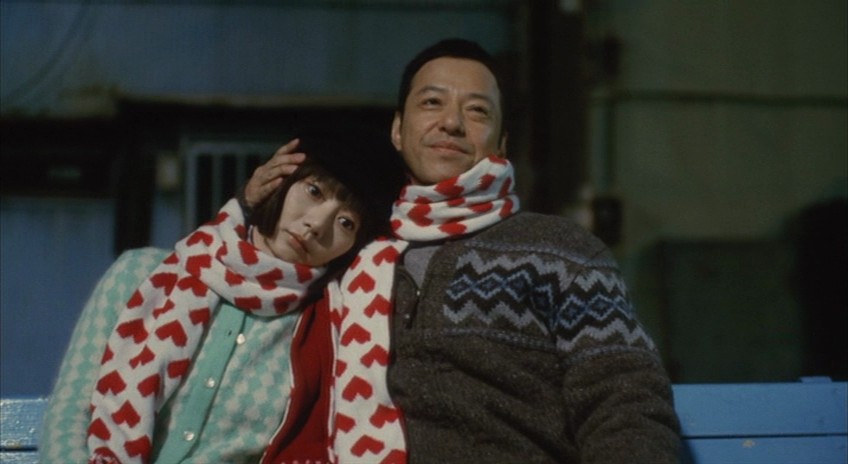
It deals with the loneliness of urban life, mainly marked for its stress and anxiety, conducting that feeling through the idea of a doll that gains a human spirit and mind. It was a largely criticized movie, despite its positive reactions. The movie does have characteristics typical of Koreeda, such as the depiction of human life and emotional background. Personally, the problem resides with the fact that the main conductor of such feelings is a doll, a way too fantastical approach to the subject.
On the other hand, it pays attention to women’s problems and their loneliness within Japanese society, and by that fact it gained a huge audience and particular attention from critics. It isn’t one of my favorites, due to its “unreality” and lack of real substance. Perhaps I didn’t understand the movie or it wasn’t well received at the time of its viewing. Still, it is an emotional release and a different way of broaching the subject without leaving the usual emotional aspects of his own movies.
9. Hana (2006)
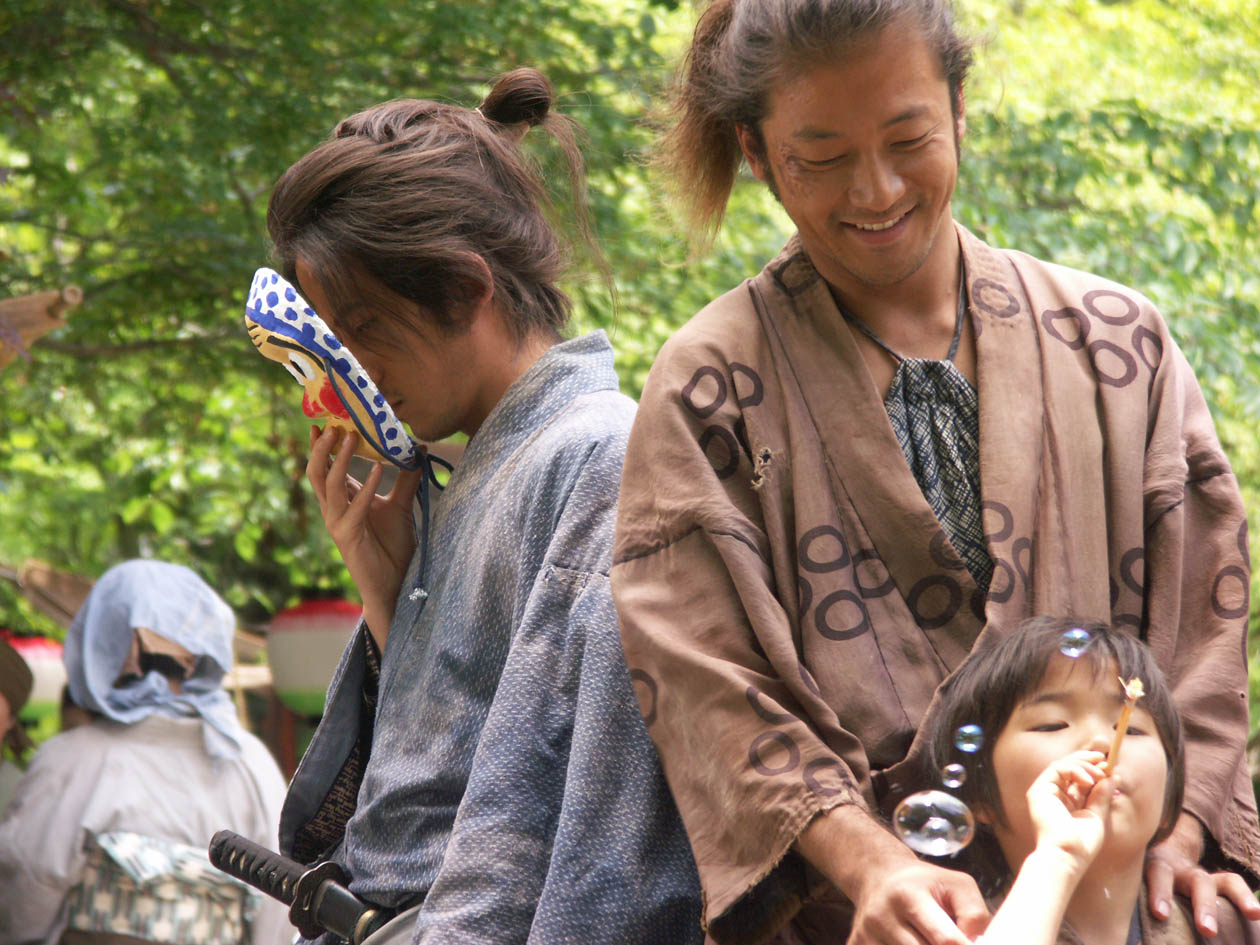
“Hana” is also sub-titled as “The Tale of a Reluctant Samurai”, which completely describes the main story of the movie, mostly presented in a comedic and humorous way, with very light demonstrations of emotion, contradicting the usual heavy setting Koreeda usually presents. I’d classify this movie as a comedy-drama, and Koreeda’s first and only major comedy-drama, proving his technical polyvalence, never ignoring his roots fiction-wise. The action takes place in the 18th century. Aoki Sozaemon was sent by his clan from Matsumoto to Edo to avenge his own father’s death.
After a long search, he eventually finds the culprit and now has to decide whether or not to kill him. The comedic side of the story is mainly brought by the eccentric characters living in the slum where our young samurai lives. Meanwhile, Aoki learns the value of life, not only with his neighbors, but also with Osae and her son, learning the value of family and its importance to one’s life that will eventually help him decide whether to avenge his father. Another comedic moment is the reluctance of a group of samurai in attacking their target, marking this situation as another factor and creator of humorous moments.
The movie was actually released at a strange time for Koreeda. In 2004 he released his masterpiece, “Nobody Knows”, and in 2008 he would release “Still Walking”. Both movies have drama and heavy emotional settings that brought immense value to his filmography. This proves his diversity of genres, and despite his inclination toward sentimental movies, Koreeda is still quite capable of introducing different surroundings, such a samurai movie, with awkward and eccentric characters as main attractions for this movie’s comedic moments.
8. Maborosi (1995)
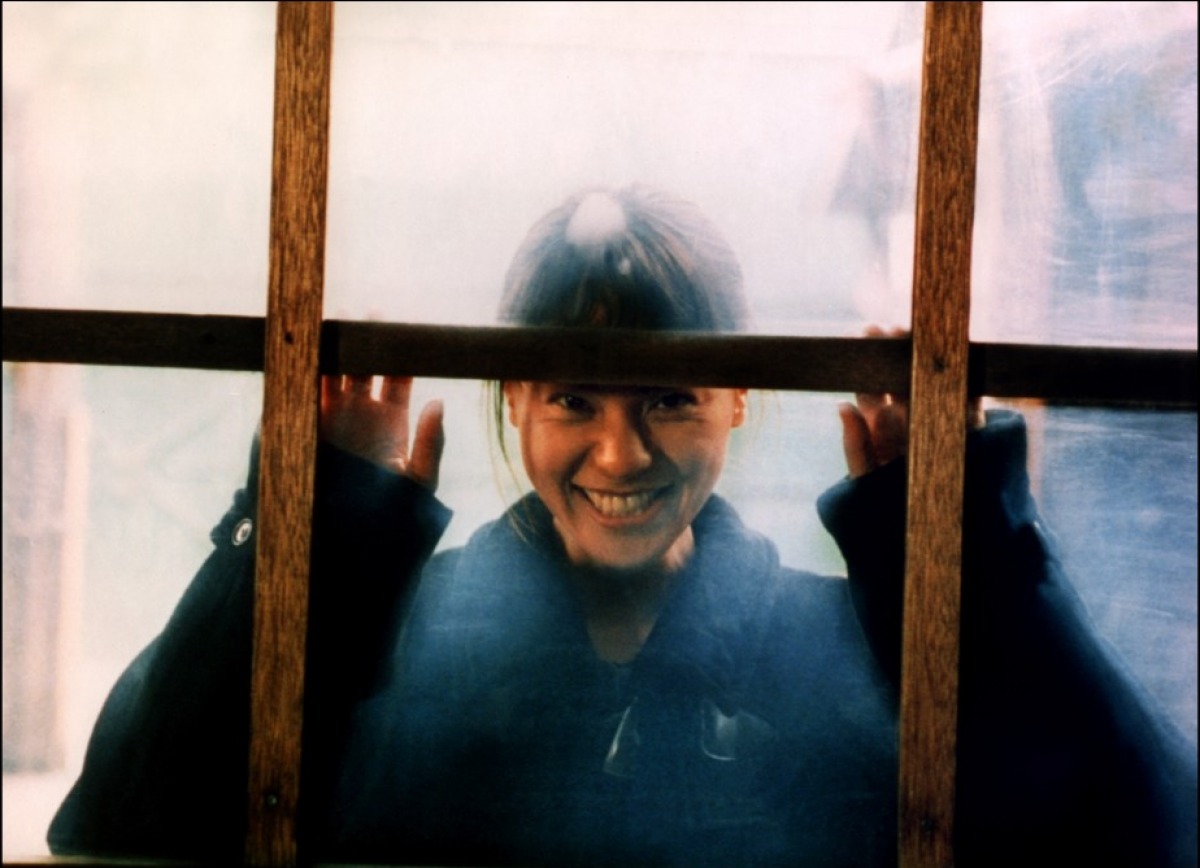
It’s one of the first major releases by Hirokazu Koreeda, who by 1995 had released two full-length movies and made a career as a documentarist. “Maborosi” is a fistful of tragedy, contrasting with its hopeful and happy beginning of someone who had high expectations of life. It deals with loss and loneliness, with being alone while not being alone. It deals with the past that is never left behind, and which is never really surpassed.
It’s melancholic journey of a woman who lost her first husband, after he committed suicide for no apparent reason. The happy and joyful face of a young woman disappears and is substituted by a depressive and always closed-off appearance of a seemingly defeated woman. Later, she marries again and changes cities, but the past doesn’t seem leave her alone. This new life is a new beginning for someone who never actually understood what really happened.
The movie may serve as a cry for help for those who have difficulties expressing themselves, bottling everything inside, never permitting others to enter their worlds. The final sea scene is or may be seen as a sea of opportunities for a new beginning, leaving the past behind, accepting what happened.
A past lost not forgotten. Koreeda continues the same trail of emotional expression with an objet d’art that is basically about loneliness and the need to conform and accept the past, while living a new and fulfilling life. The director continues the same path of sentimental exteriorization with “After Life”, beginning a series of dramatic masterpieces in his filmography.
7. Distance (2001)
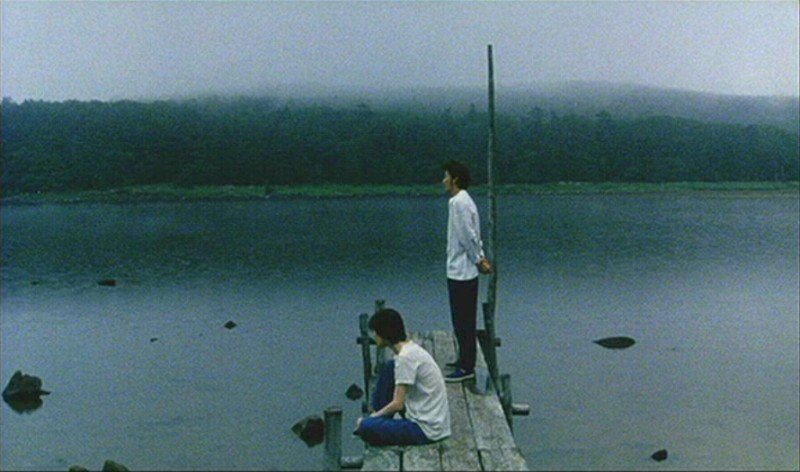
When I viewed this movie, I had huge expectations about how Koreeda would approach a sensitive subject such as this, knowing the impact cult movements had in Japan in early 80s. I wouldn’t say I was disappointed, but the final outcome fell a bit short compared to my initial expectations. The movie only gets interesting and much more involved, emotionally, after the 40-minute mark, when one of the former members of the cult appears to help the relatives of those dead in the massacre.
The movie exploits the emotional consequences on the lives of the relatives of the dead members of a cult that, three years before, had contaminated the city’s water supply and then committed mass suicide, in their “headquarters” located near a lake. I expected a more sentimental voyage through such events and a more harsh depiction of such aftermath on the lives of the relatives. The relatives, in order to celebrate the 3rd anniversary of their relatives’ death, visit the place they committed suicide to remember their memories.
Such an event has strong sentimental and dramatic possibilities that could have been exploited more “heavily”, but still the movie shows a very emotional description of the sufferings and consequences on the lives of the relatives. My disappointment comes from its “lateness” in becoming interesting. Up until the 40-minute mark there are no accurate descriptions of the lives of the relatives and no sentimental or dramatic showings as consequences, therefore becoming more useless in its viewing. But after the 40-minute mark, the movie gets more interesting with flashbacks of the days before the cult members’ final act.
6. I Wish (2011)
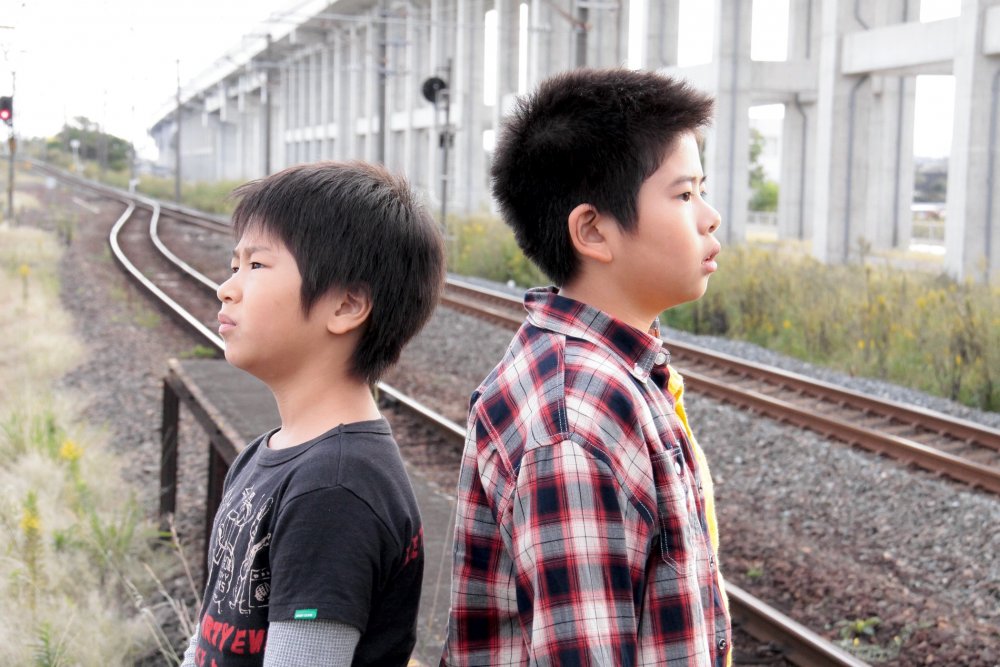
If I could describe “I Wish” in just one word, it would be “beautiful”. That’s what it is; it’s just another beautiful, kind and sweet movie by the genial mind of Hirokazu Koreeda. The fact he uses kids as main characters, and also the fact he uses two real-life brothers for the main roles, really puts another toll on this quite exceptional release, where family plays the most important role in life and is described as the most vital feeling in the lives of the two brothers.
Two brothers live separately from one another and wish to be together, dreaming and wishing for their own reunion. They hear a rumor that a new type of train traveling at top-speed could grant a wish, if they pass each other at the same time, and if the “wisher/s” stayed at a certain spot. Of course, this by its own would be quite difficult to accept and transport into reality, but Koreeda’s movies take the viewer to a different type of atmosphere of emotional acceptance.
Koreeda joins two brothers together, mixing reality with fantasy and fiction, creating a superb adventure of dreams, wishes and hope. It’s sweet and delicate, yet harsh and difficult, giving priority to the reality of the brothers’ feelings without permitting the fantasy to become too “unreal”.